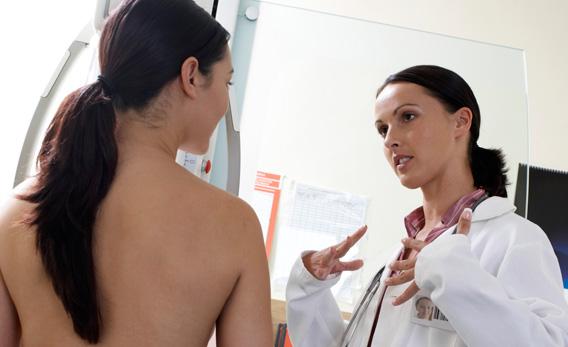
A new study suggests mammograms may not help in breast cancer treatment
?
Photo by Fuse/Thinkstock.
Last week, the conversation about breast cancer diagnosis and treatment moved into new and uncomfortable territory. The New England Journal of Medicine published a large-scale study concluding that mammograms may not be as helpful as most people believe in treating breast cancer. Even worse, the study suggested that more than 1 million women may have been unnecessarily treated and diagnosed.
Everyone agrees that fewer women are dying from breast cancer. We?meaning the medical community and interested women?assumed that the increased survival rates were a result of early detection and mammography. ?Early detection saves lives? is one of the main rallying cries of the Susan G. Komen Foundation-led pink-ribboned breast cancer community. But what if it doesn?t?
The study looked at breast cancer diagnoses over the last 30 years. As expected, screening coincided with an increase in detection of early stage breast cancers. But the number of metastatic cancers was unchanged. Even the number of late cancers? those that had spread to the nodes but not distant organs?did not decrease very much.
The idea of screening is to find disease early so it can be treated. People thought breast cancer was perfect for screening?that early breast cancer inevitably turns into late cancer. If this simple progression were true, then the number of increased early diagnoses we?ve seen during the last 30 years should be matched by an equivalent decrease in late diagnoses. But this did not turn out to be the case.
This study is flawed in the usual way that broad-based population studies are flawed. The claim is based only on observation and association. We just know that during the period of the study, mammogram use increased, the number of early breast cancer diagnoses increased, and late-stage cancer diagnoses barely decreased. We don?t even know whether, for example, the women with metastatic cancer even got mammograms.
If a patient never had a mammogram and then came to her doctor with a huge palpable mass, we obviously would not expect early detection by mammogram. But that patient is still in the pile of late-stage cancers the authors use to demonstrate overdiagnosis.? (A more meaningful study would only compare women whose cancer was diagnosed by mammogram.) Another reason the study can?t definitively show its touchiest suggestion?that mammograms were overdiagnosing cancers?is no one knows what is happening to these early stage cancers. The authors speculate that these cancers regress or just stay the same. But speculation is not the same as looking at the cells and watching them. That would require letting early stage cancer remain in someone?s body and sampling it over time without treating it. And at this point, when we are still aggressively treating early stage breast cancer, that study is nearly impossible to pull off.?
Since I became a family-practice resident in 1998, I have been referring women for mammograms. Until 2009, it was pretty straightforward: Any patient over 40 got a mammogram referral every year, maybe every other year. When a federal task force recommended against screening mammograms in women between 40 and 50 in 2009, the backlash was fast and harsh. There were accusations of health rationing, of setting up women to die.
Source: http://feeds.slate.com/click.phdo?i=25e6d9be713134f7c50799a312ad1ee6
university of kentucky ncaa oakland news alec baldwin alec baldwin college basketball oakland
No comments:
Post a Comment
Note: Only a member of this blog may post a comment.